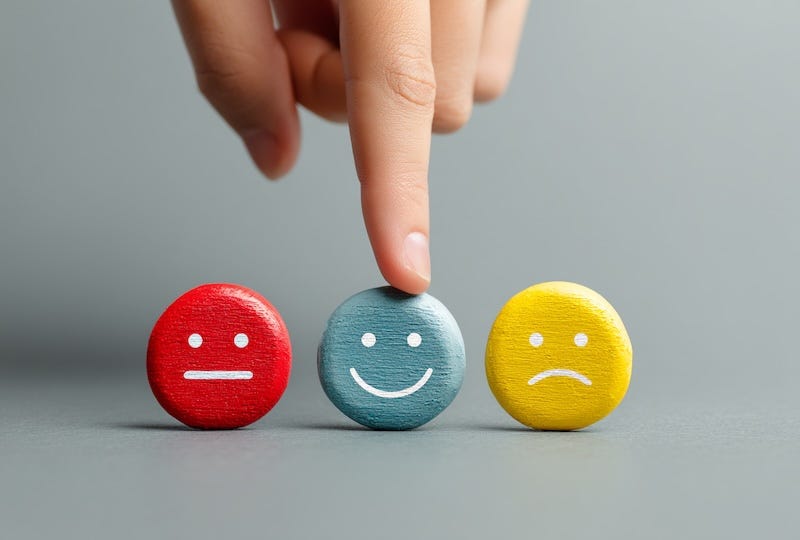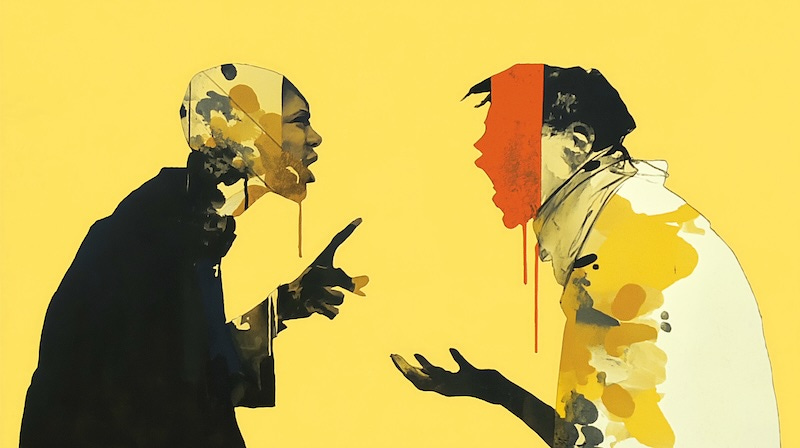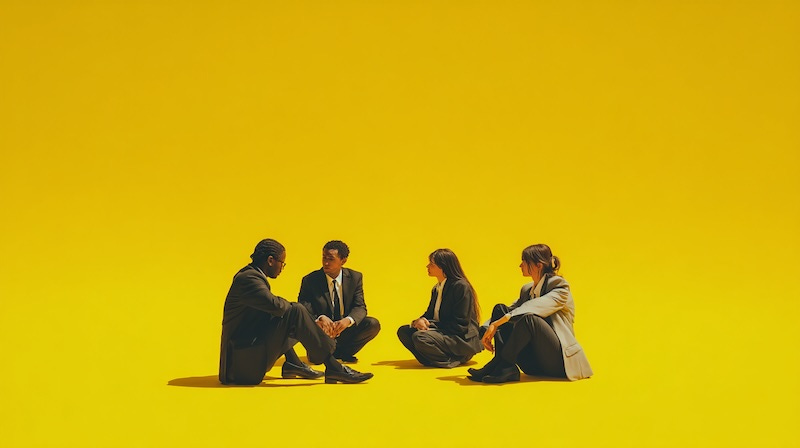322. Actor-Observer Bias
If life were a movie, you'd be the hero and main actor in your story. But what you don't realize is that you have Actor-Observer Bias. You need to change that.
This is The Best Leadership Newsletter Ever, the most fun way to learn life’s leadership lessons, like the 3 things every successful company needs.
I live in Los Angeles. I’d rather drop a brick on my big toe than be stuck in the Friday traffic of this godforsaken city.
That’s why I don’t book in-person meetings on Fridays.
As you can imagine, I wasn’t happy that I had an in-person meeting last Friday. It was on the other side of town.
Getting from where I live to the other side of town feels a bit like getting from where you live to Antarctica. It seems far too far away, and there are a heckuva lot of bad things that can happen on the way there.
As luck would have it, on my way there I got stuck behind a jerkhole who was driving so slowly I could walk on my hands faster. And I don’t know how to walk on my hands.
I was banging my fist against the steering wheel. I was screaming obscenities at him. I was yelling that he needs to learn how to drive and get the fuck off the road and out of my way.
I ended up 20 minutes late for my meeting.
That was a huge embarrassment and not representative of the person I strive to be.
I walked into the conference room, apologized to everybody for my tardiness and explained that I got stuck behind an asswipe who should have his license revoked.
Let this be a lesson to you.
In fact, it’s about to become a lesson to you.
Wait for it.
Wait for it.
Ok, here it comes.
The Lesson For You
There’s a thing called Actor-Observer Bias. Whether you know it or not, you are a victim of the bias, and it's not good. So I’m here to out you.
The Actor-Observer Bias means that when you judge your own behavior, you blame your failures on external factors, but when you judge others’ behavior, you attribute it to flaws in their personality.
In other words, you justify your failure by believing you’re a victim of circumstance, but you judge others’ failures as a result of their inadequacy.
This is exactly the reason I started this little ditty by telling you about my Friday drive. My reaction was a perfect example of Actor-Observer Bias. I blamed my tardiness on another driver. I blamed the circumstance.
But when it came to the slower driver, I assumed he was a jerk. I blamed his personality.
You know what? We should probably talk about the three reasons why we behave the way we behave. Maybe I shoulda brought that up earlier.
My bad. Let’s talk about them now.
The 3 Reasons For Our Behaviors
The reasons for human behavior can be categorized into three buckets:
Personality attributes
Social influence
Situational constraints
🤦🏼♂️ Personality Attributes are behaviors that are attributed to your habits, intelligence, or other personality traits.
For instance: “She did that because she was clueless and didn’t know any better.”
📣 Social Influence are behaviors that arise because of pressures or expectations coming from your peers, authority figures, or cultural norms.
For instance: “He didn’t speak up because he was intimidated by his very tall boss.”
🚦Situational Constraints are when logistics or circumstances influence your behavior. This includes deadlines, emergencies, or your physical surroundings.
For instance: “She walked out of the meeting because she got a sudden call from her child’s school.”
When you aren’t aware of the actual facts, you can come up with reasons for people’s behavior based on any of these three attributes. As an example, here’s one scenario (being late for a meeting) that can be explained in three different ways:
She was late for the meeting because she doesn’t value my time (personality issue)
She was late for the meeting because she couldn’t leave a conversation with her boss (social influence)
She was late for the meeting because she got a flat tire (situational constraint)
The problem with the Actor-Observer Bias is that you blame other people for their personality and rarely consider explanations related to social influence or situational constraints.
That’s bad.
You need to stop.
Actor-Observer Bias At Work
Actor-Observer Bias shows up everywhere all the time. Now that you understand it, you’ll see it constantly.
Here are a few places to start looking:
Gossip: Almost all gossip is a manifestation of Actor-Observer Bias
Meetings: When somebody is quiet, late, or argumentative in a meeting, do you normally attribute it to their personality? It could be something else.
Remote workers: If you don’t see continuous engagement from a remote worker, do you assume they are abusing their remote privilege?
Performance reviews: Do you tend to attribute less-than-stellar outcomes to your workers’ personality traits?
I’m telling you, it’s everywhere.
The problem with Actor-Observer Bias is that your assumptions will cause people to lose trust in you. Trust is definitely something you want to maintain as a leader.
Even worse, if you continually succumb to Actor-Observer Bias, it will destroy people’s feelings of psychological safety at work, and it will essentially tank the company culture.
The good news is that there’s a way to stop falling victim to the Actor-Observer Bias.
Yup, there is.
Who loves ya, baby?
How to Counteract Actor-Observer Bias
Here’s what I recommend you start doing, and I recommend you start doing it right about now.
First, pay conscious attention to when you judge other people’s behavior. When you judge them, are you automatically assuming it’s a personality issue?
Next, stop yourself when you’re about to blame somebody’s personality for their behavior. Ask yourself, “How else could I explain the behavior?” Challenge yourself to come up with social or situational reasons that might justify it.
Finally, be curious. Ask them if everything is ok. Address their behavior with an open mind, understanding it may be explained by social or situational attributes.
A Final Thought From The Driver’s Seat
Here’s the truth: we all think we’re the main character in this play of life. That means we often make ourselves the hero and position other people as the villain.
But successful leadership means getting out of your own head and into someone else’s shoes. Or out of your own shoes and into their head. I forget who’s wearing the shoes in this particular scenario.
Anyway, what I’m asking of you is simply to remember that the person who missed your deadline, showed up late, or was unusually silent in a meeting might just be navigating their own proverbial traffic jam at their own proverbial speed.
So before you bang on the steering wheel of judgment, maybe it’s time you unpack your Actor-Observer Bias and toss it out the window for good.
How good is your company culture?
Take the free assessment
Subscribe to The Best Leadership Podcast Ever
YouTube
Apple
Spotify
or your favorite podcast player.








I go the other way and assume that there’s a reason for lateness etc. it drives my partner mad. ‘Stop making excuses for everyone!’